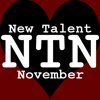 There are all sorts of opportunities for budding crime authors thanks to digital media and the internet. Dozens of new crime books come out every week and a great many of them are self-published by authors and new, independent digital publishers. Some are great, many are OK, and others lack that certain little something that makes a great novel.
There are all sorts of opportunities for budding crime authors thanks to digital media and the internet. Dozens of new crime books come out every week and a great many of them are self-published by authors and new, independent digital publishers. Some are great, many are OK, and others lack that certain little something that makes a great novel.
So, as part of New Talent November 2012 we asked James Oswald, a crime author whose book Natural Causes has hit over 100,000 downloads, to write a guest piece for us sharing his experience as a self-publishing author. He continues to publish his books independently and you can read our review of Book of Souls here. Here’s his tongue-in-cheek guide to ebook success. Over to James…
 Writing’s easy. It’s just words, after all. Anyone can bash out a couple of thousand a day. Three weeks and you’ve got a short novel. Some people can do that in a fortnight. Less. Just imagine how many books you can churn out that way. No need to rewrite, just bung it through an ebook formatting program as soon as it’s done. Hang the quality, it’s quantity that counts in this game.
Writing’s easy. It’s just words, after all. Anyone can bash out a couple of thousand a day. Three weeks and you’ve got a short novel. Some people can do that in a fortnight. Less. Just imagine how many books you can churn out that way. No need to rewrite, just bung it through an ebook formatting program as soon as it’s done. Hang the quality, it’s quantity that counts in this game.
Get your kid brother to do your cover design for you. Or your cousin who reckons he’s really good with computers. Or the local primary school art class. Photoshop’s brilliant and not that hard to learn. It’s only the first impression of your book, after all. Once they start reading your speedily-written words they’ll forget the cover anyway.
Alternatively, spend big to earn big. Hand over your manuscript and your credit card details to any number of outfits who’ll do all the boring stuff for you. It’s money you’ll earn back soon enough, anyway.
Don’t bother with editing and proofing – you can always make corrections later on. If you’re lucky, helpful reviewers will point out your mistakes. You can use friends to proof-read your stuff if you’re worried about it. Chances are they know how to spell.
Get onto Twitter and Facebook and sell, sell, sell your books. The more times you tweet the link to your Amazon page the better. Don’t try to get clever and tell your readers about yourself. They’re not interested in you; they only want to know about your book. Lots.
No-one really expects a self-published book to be error-free, so don’t worry about speeling mistaks and typso. Sure, you might get the odd one-star review complaining about your lack of professionalism, but hey – what do they know? Anyway, you know what to do about reviews, right?
Create a buzz about your book by setting up fake accounts on Amazon and fan forums. Have conversations with yourself and post yourself great reviews. Don’t forget to post nasty reviews of your competition too, or people will begin to suspect you’re footwear with someone’s hand up your arse. Be careful to keep all your different identities in order, though – don’t go signing off with your real name when you’re pretending to be someone else.
Talking of reviews, you should also bully all your friends into writing rave ones for you. That’s if you’ve got any friends. If not, you can always buy some. Just google ‘Amazon Review Services’. Remember – the more you spend on your ebook, the more likely it is to be successful and make you rich beyond the dreams of avarice.
Anyone can get rich selling self-published ebooks, and that’s the name of the game: money. There’s no other reason for spending hours in solitude at your keyboard, sweating out those stories. Don’t kid yourself you do it for the love of writing; that’s a mug’s game. You’re in the sales business and the product is books. Stack ’em high and sell ’em cheap.
Cheap sells, and you didn’t spend all that much time on your story anyway, so why not mark it down as low as you can? Everyone loves a bargain, and if it’s only 99 cents, most people won’t bother complaining when they realise it’s rubbish.
The secret to self-publishing success is volume. Pure and simple, you need to get as many ebooks out a year as possible. One a month is good; one a fortnight better. How to do this, if you can only manage a thousand words a day, or fewer? Write short, obviously, but you can also copy someone else’s book. Steal the story and write something similar yourself, or why not just cut and paste the whole thing? No-one’s going to notice.
You know what really sells? Sex. EL James didn’t get rich for her fancy prose, after all. It was the getting down and dirty. If you want to be really successful, try something close to the edge. Break a few taboos. No matter how sick your imagination, there’s a group of like-minded people out there in internetland who’ll pay good money to read about it. Don’t worry that it’s exploitative or sickening. You’re not breaking any actual laws, just writing about breaking them, so who cares?
They say that the definition of madness is doing the same thing over and over and expecting a different result each time. But they say that about genius too! So, your first ebook didn’t sell as well as you’d hoped. Or at all. But that doesn’t matter. Rattle out another just the same. Who knows, this time you might get lucky. You might win the lottery too.
And finally, when choosing your title, be sure to name check at least two famous authors. That way your book will always come up when someone is searching for something by them.
But… in all seriousness, there’s so much information about self-publishing out there it’s difficult to remember why we started in the first place. My only advice to anyone considering it would be this: write the best book you possibly can. Spend only what you can afford to lose – first on a cover, second on basic editorial services, third on getting someone else to format it for you if you really can’t do that yourself. Use social networking to sell yourself, not your book – interact with your readers, however few they may be at first. Be as professional as you can about the whole process. And ask yourself why you’re self-publishing. Is it because you want to get rich? Is it because you believe agents and publishers have only rejected your manuscript out of spite and an inability to recognise your genius? Or is it because you love writing and words and want to share your stories with anyone who might read them? Only one of those reasons is the right one, and it’s not the first two.










A cynical appraisal but sadly true in many cases. Indie publishing is like the Wild West with millions trying to stake their claim – writers who just want to be read, writers for money, writers who aren’t on trend for publishers’ needs, writers who want the world to know the life story of their late pet and others with a one-subject drum to bang. Some are trying to build a career because, with the advent of epublishing, there are more good books than there is shelf space or marketing budgets. It’s a volcano of writing – some of it destructive while other parts will, hopefully, form new islands when the dust settles. Until that happens, playing with language is the best job in the world.
Your Tweet was right. I am laughing at this comical post.
The author has effectively illustrated the pitfalls of amatuer writers throughout the world.
Thanks for an early morning laugh.